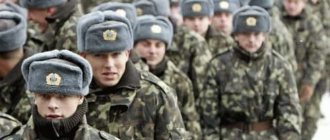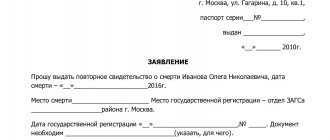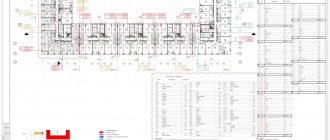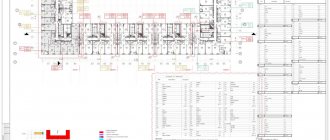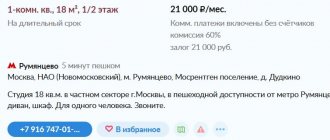According to statistics, in Russia about 20 million citizens live below the poverty line. To provide social support, special government programs have been created. Compliance with certain criteria allows low-income people to receive housing for free or with the help of targeted subsidies. However, it must be recognized that the existing mechanisms are low in efficiency. In the summer of 2021, Putin instructed the government to provide housing for the poor. Current conditions and prospects for solving problems are discussed below.
Purpose of the housing program
The program is designed to solve the housing problem of citizens of the Russian Federation. The conditions for providing subsidies may differ depending on the region of residence of citizens. For example, in Moscow, funds provided by the state can be spent on:
- purchase of housing;
- purchase of housing during the construction phase;
- making a down payment on a mortgage or repaying the principal debt on a mortgage loan;
- to purchase a separate room in a communal apartment in addition to your own.
It is important to note that in order to receive a subsidy, you must have the status of a family in need of improved housing conditions. This status is assigned by the local administration based on the package of documents provided. Moreover, citizens in need of improved housing conditions do not necessarily have to have the status of a low-income family to receive a housing subsidy.
The subsidy is targeted and provided free of charge from the federal or regional budget on a first-come, first-served basis.
Terms of service completion
The time frame for consideration of an application depends on the legally significant action. For example, you can obtain the status of a low-income family in 8-10 days. However, the period may be extended indefinitely if the applicant has not provided all documents, and to obtain them it is necessary to contact government authorities.
The decision to pay benefits or provide a housing subsidy is made within 10 days. Whereas for financial assistance, a decision is made within 30 days (Moscow).
Who has the right to claim the status of “poor”
Each Russian region has its own procedure for recognizing a low-income family.
It depends on funding and the level of the minimum subsistence level. Most often, the following apply for the status of “poor”:
- Families with only one parent;
- With 2 parents, one or both of whom are not officially employed or have a low income;
- Large families;
- Families with pensioners or disabled people.
Social protection authorities evaluate total family income, property, and housing availability in each specific case.
What income is accountable? These are wages, children's wages, benefits and scholarships, disability benefits, old-age pensions, and other payments.
Documents to confirm status: passports of all adult family members, birth certificates of children, marriage certificate, certificate of family composition, documents on income of all family members, account details, disability certificate, pension certificate and others.
Required documentation when applying for benefits
To obtain assistance you will need the following documents:
- Statement.
- Applicant's passport.
- Certificate of income for the quarter.
- Excerpt from the house book.
- Documents on expenses incurred (treatment, funeral payments).
- Evidence of lack of income (certificate from the Central Employment Service, FSSP). Citizens need to be guided by the provisions of the Moscow GD dated December 28, 2004 No. 911-PP.
Sometimes additional documents may be required. More details about the types of assistance in Moscow and the list of documents for each of them are here.
Information about the financial status of the family must be confirmed annually, from January 1 to August 31. You can update your data on the website mos.ru or through the Central State Administration “My Documents”. The action is performed through your personal account.
How to apply for a housing subsidy
In accordance with Art. 51 of the Housing Code, citizens are recognized as in need of improved housing conditions if:
- None of the family members are the owner or tenant of the housing (there is no certificate of ownership or social tenancy agreement).
- Citizens live in a house that does not meet the requirements established for residential premises (apartment).
- A citizen with a severe form of chronic disease lives in the same apartment.
- Rented or own housing does not meet the living space standards for 1 person.
These factors are the basis for registering the poor with local authorities. The new apartment (house) must meet the following requirements: the area must correspond to the established standard; due to its increase, living conditions have improved.
Download for viewing and printing:
Article No. 51 of the Housing Code “Grounds for recognizing citizens as needing residential premises provided under social tenancy agreements”
Important! If the registration norm for housing area has changed in the region, and the family is already registered according to the old norm, local authorities do not have the right to remove the family from the queue for an apartment.
If the applicant deliberately worsened his living conditions (exchanged the apartment for a smaller one, registered strangers, sold his share, got a fictitious divorce), he is denied benefits for the next 5 years.
Procedure for receiving cash payment
To register, not only identification documents for all adults and children, but also documents ensuring the receipt of benefits are submitted to the local government authority.
The list of documents required for registration may differ depending on the region of residence. Check with your local administration for the exact list. Additional documents:
- Certificates from the cadastral, registration chamber, technical inventory bureau (they confirm the fact of the absence of real estate);
- Parents need to contact their house management for certificates confirming their family composition.
- Documents confirming the types and amount of income of all family members.
- Documents confirming the right to a preferential queue to receive a subsidy.
The decision is made within 1 month.
To receive a subsidy, low-income families must write an application to the housing fund at their place of residence, indicating the chosen method of improving housing conditions. For example, in Moscow the following methods are provided: concluding a social rental agreement, concluding a free use agreement, providing subsidies and social mortgages.
Don't get sick, but think about diagnoses
If one of your family members has serious chronic diseases from this list and there is no separate room for the patient, then you cannot all live together. This means that if the other conditions are met, you can get into the preferential queue for an apartment.
Diagnoses you wouldn’t wish on your enemy: open form of tuberculosis, schizophrenia, psychosis, cerebral palsy, multiple sclerosis, etc. You won’t get this disease on purpose, but if you have a diagnosis, it’s worth fighting.
Important! It is not the patient himself who is in line, but the family who cannot live with him.
Persons with disabilities since childhood and persons with disabilities of groups 1 and 2 also have the right to an apartment out of turn. In this case, they are the ones who become registered. The danger of the diagnosis does not matter.
Implementing a certificate
After receiving the subsidy, families must proceed in the following order:
- Open a bank account to transfer money from the certificate;
- Choose a real estate agency;
- Choose suitable housing;
- Complete the purchase and sale of an apartment and register it;
- Contact the state registration service, presenting the agreement, receipt and act;
- Provide an agreement to the bank for debiting funds to the home seller’s account;
- Sign the deed of transfer of the residential premises and take a receipt from the seller that the funds have been received by him.
After receiving the apartment registration certificate, it must be submitted to the housing fund that issued the subsidy. Improving living conditions serves as a fact for removing a family from the register.
Important! Having received a certificate for issuing money, the family must use it within a certain period of time. The implementation period for the subsidy is different in each region.
Go to the rescue team. Or the wipers
Professional emergency responders may also qualify for government housing. As, indeed, are housing and communal services workers, teachers, doctors, judges and prosecutors.
True, for this, your organization must have a housing fund from which employees are provided with office apartments.
Well, in Soviet times, quite a lot of young people worked as janitors for the opportunity to get an apartment. You can try it now: it’s less busy than in the office, you work in the fresh air, and you can also earn extra money in your free time.
When can an applicant be deregistered?
In what cases is a family removed from the queue to receive a subsidy:
- She voluntarily refused to participate in the program;
- Lost the grounds for assigning a subsidy;
- Moved to another region (this point does not apply to residents of Sevastopol, St. Petersburg and Moscow);
- Received budget money to buy an apartment or build housing;
- Received land for the construction of housing (with the exception of large families with three children);
- Provided documents that did not correspond to the real property status or concealed papers confirming ownership rights.
Important!
If, while waiting, the applicant purchases (receives) an apartment (house) that is unable to improve living conditions or is unsuitable for living, this fact should not exclude low-income citizens from the queue. Temporary registration in another locality is also not a reason for refusal of subsidies. A citizen has the right to temporarily leave his place of registration in connection with work, treatment, or study in another city. This also includes temporary relocation due to fire, apartment flooding and other emergencies.
Take care of those who need it
The option is not exactly free, but tolerable
. Elderly or disabled people who have difficulty caring for themselves often enter into an annuity agreement.
Conditions may vary. The cheapest option for you: when you immediately start living with the owner of the apartment in his home, cook his food, wash his things, buy medicine for his pension, etc. And when he passes away, you will become a full-fledged owner of the living space.
are a lot of nuances here
. You need to clearly understand the conditions and talk about what will happen if you don’t suit each other or for some reason break the agreement. But if there are no other options, it's worth thinking about. Moreover, standing in line for housing does not interfere with this.
Support for the poor in the sphere of housing and communal services
Due to the regular increase in tariffs in the utility sector, the state at the regional level has introduced a special benefit for the poor - a subsidy for the payment of utility bills.
To be provided with it, low-income people must: be the owners of apartments or use them on the basis of social rent, as well as rent housing under a lease agreement or be registered in a housing cooperative.
Conditions that applicants must meet:
- They have no utility debt;
- The amount of their monthly utility payments is higher than the established norm. The norm is established in each region separately.
Important! When calculating the norm, the following are taken into account: the standard cost of services, the number of people, total income, previously issued utility benefits (in connection with retirement age, disability, large families, etc.).
Required documents
Social protection authorities provide subsidies for payment of housing and communal services based on the following documents:
- Passports and birth certificates of children.
- Certificates of paternity (if available).
- Certificates of marriage/divorce.
- Certificate of family composition.
- Documents confirming the income of all family members.
- Paid receipts for housing services with checks.
- Documents confirming the right to use residential premises (certificate of ownership, extract from the Unified State Register of Real Estate, lease agreement, social tenancy agreement, etc.).
- Certificates of absence of debts for payment of housing and communal services.
- Bank account details.
Additionally, documents are presented on the basis of which low-income people already receive utility discounts (identification of a pensioner, mother of many children, disabled person, Chernobyl survivor, veteran).
Methods of contact:
- personal written statement;
- use of email;
- government services portal.
The maximum processing time is 10 days.
To transfer money you need to open a bank account. The compensation is monthly, valid for 6 months, then it must be renewed.
Attention! It is possible to receive a money transfer in the current month if the application was written from the 1st to the 15th. If you apply for a benefit in the middle of the month, you can count on it from the next month.
If the applicant has category 1 disability, needs care, or is over 80 years old, he has the right to have compensation delivered to his home.
Be prepared that the receipt procedure will take a very long time.
Be prepared to wait a long time for a free apartment. For example, in Moscow, people who joined the queue in 1995 are now receiving apartments.
25 years ago!
Here are the statistics for Moscow for 2021:
The renovation program should help. In the near future it will cover 25 thousand people on the waiting list.
The preferential queue moves faster. Let us remind you that it is for WWII veterans, disabled people, orphans, people with dangerous diagnoses, liquidators of man-made disasters, large families, military personnel, people who were included in the resettlement program for northern peoples.
Where should I go?
Applications from citizens who decide to improve their housing standard by participating in the federal program are accepted at the place of their official registration by territorial local government bodies.
There are cases where you can register immediately and at the person’s place of permanent work.
You can contact the executive body by visiting the department in person. Another option is to submit a request electronically to the official website or mail of the state administration.
It is prohibited to take a seat in several queues at once.
Waiting list
Once a positive decision has been made to place the applicant on the waiting list for improved housing conditions, everyone on the waiting list receives their original number. It may remain static for some time. But subsequently the applicant’s number changes, sometimes upward, when preference in the allocation of housing is given to citizens who fall under the preferential category. Information about the current queue number is constantly changing, so it is necessary to monitor it periodically.
Find out the queue
There are several ways to find out your own serial number for improving your living conditions:
- Check with administrative authorities in person;
- Request information through a written request sent through the post office;
- View electronic queue information using the Internet.
The speed at which the queue moves directly depends on the level of the economy in the country.
Dequeueing
In civil practice, there are grounds for removal from the queue, according to which executive bodies exclude applicants from the list of those wishing to improve their living conditions.
Removal from the queue occurs after 30 days from the date of discovery of the reason.
The grounds giving the right to be removed from the queue include:
- knowingly providing false information about the applicant;
- changing of the living place;
- purchase or acquisition through other sources of your own land or real estate;
- independent voluntary request to be excluded from the queue.
When exclusion from the queue occurs without reason, citizens have the right to challenge such a decision in court.



